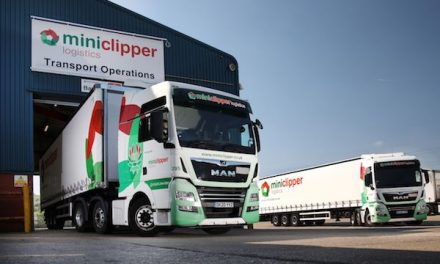Survey reveals that 32% of operators claimed that they did not have any technology fitted and did not plan to do so in the next year
The myriad of reasons logistics and road transport professionals invest in fleet safety technology have been brought to light by new research commissioned by Brigade Electronics.
The road safety pioneers commissioned an in-depth survey of transport operators across a range of disciplines to get their views on the reasons they use technology on their vehicles, how they have enhanced operations and safety, and what features influence their decisions to invest.
Those surveyed comprised of third – party logistics companies and own account operators (80%), with the remainder being made up of public sector, municipal waste and other.
And despite over half of respondents saying that vehicle safety technology had improved driver safety behaviour and half reporting that they had seen a reduction in insurance premiums, a whopping 32% claimed that they did not have any technology fitted and did not plan to do so in the next year.
Furthermore, although DVS star rating requirements will be increasing to three stars in 2024, requiring more operators driving through Greater London to fit safety devices this will not improve safety outside of the area.
Emily Hardy, Marketing Manager UK, of road safety specialists Brigade Electronics, said: “Seeing industry professionals’ thoughts on road safety is always fascinating and it is good to see amongst some a wider adoption life-saving technology and a better understanding of the benefits.
“However, the results reveal there is a long way to go. Aside from the cost saving benefits, the reduction in road collisions is priceless and it is startling to see there is still so much education to do in the industry.”
Out of those responding, 54% said the fitment of camera systems/digital recording had improved driver behaviour.
A total of 50% said safety technology had seen a reduction in insurance claims, with 32% seeing a drop in incident reporting and 21% seeing evidence of an increase in fuel economy.
Main drivers for the installation of systems were a desire to improve fleet standards, recording insurance costs, improvement in driver behaviour and Direct Vision Standard compliance.
Brigade, which introduced the reversing alarm to the UK back in 1976, has been at the forefront of road safety for over 40 years. The company sells aftermarket solutions for heavy goods vehicles and mobile plant – including ultrasonic obstacle detection, white sound reversing alarms, camera systems, live digital recording devices and artificial intelligence based systems.
Brigade believes HGV drivers need a combination of direct and indirect vision and other cutting-edge safety equipment, such as sensor and audio technology, for optimal safety.









